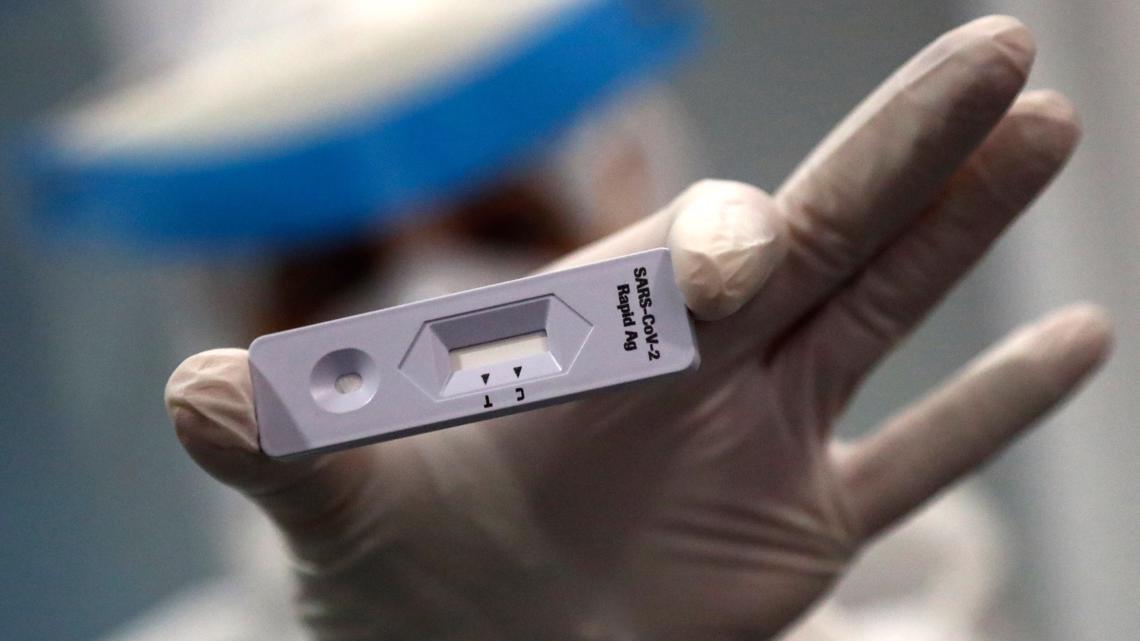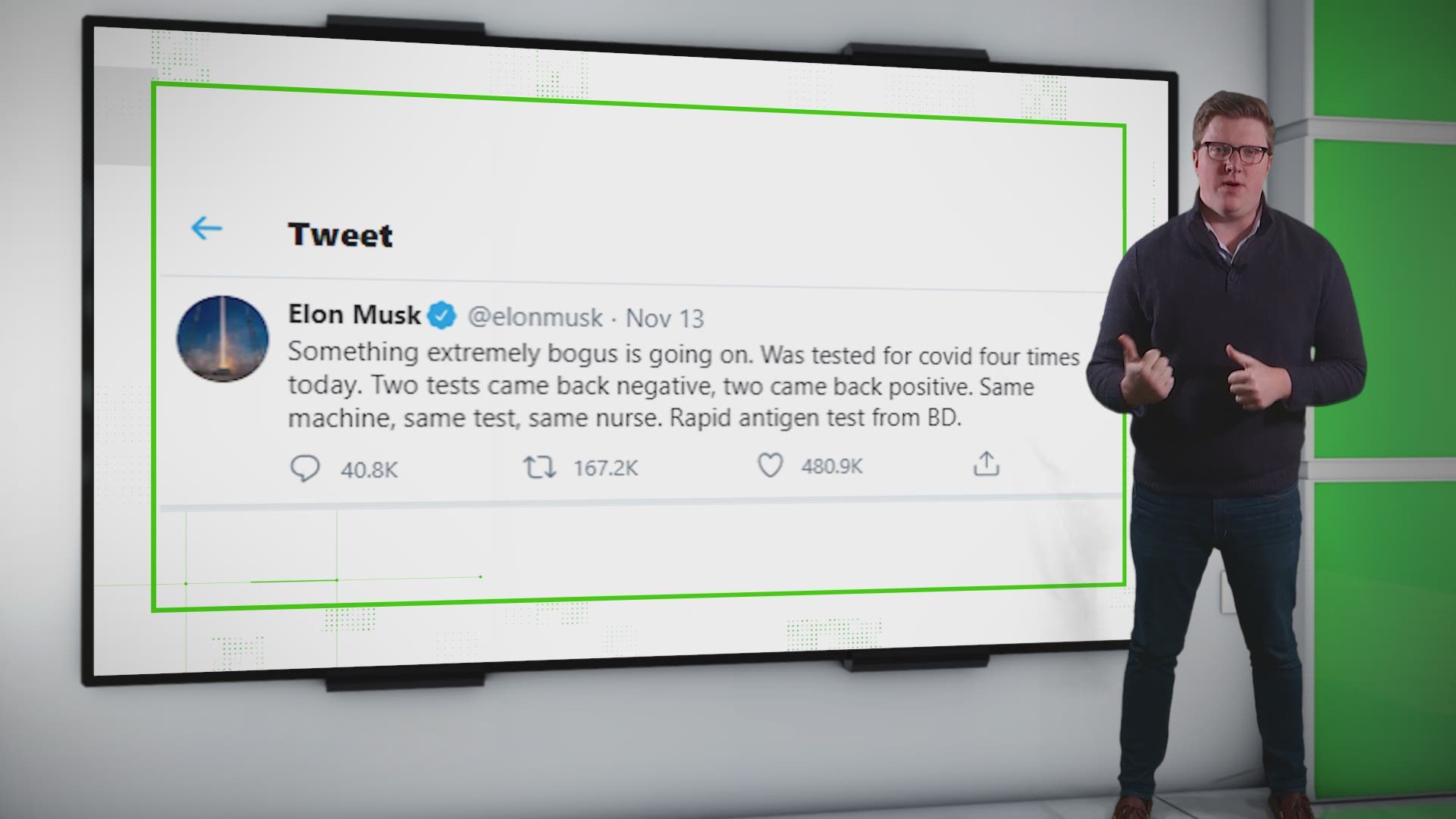Antigen tests have recently been in the news after billionaire Elon Musk said something “extremely bogus” is going on because he received two positive and two negative COVID-19 results from four antigen tests.
But statements like that show a fundamental misunderstanding of antigen tests, which are known to sacrifice accuracy for the sake of speedy results.
THE QUESTION
Are antigen tests less accurate than other kinds of COVID-19 tests?
THE ANSWER
Yes. Sometimes a molecular test is needed to confirm negative results.
WHAT WE FOUND
The Food and Drug Administration has a page on COVID-19 testing basics that was last updated on November 6. It breaks down three kinds of COVID-19 tests on that page: molecular tests, antigen tests and antibody tests.
According to the FDA, “Positive results [with antigen tests] are usually highly accurate, but false positives can happen, especially in areas where very few people have the virus. Negative results may need to be confirmed with a molecular test.”
Part of the reason some still opt for the antigen test anyway is the speed.
“Antigen tests usually provide results diagnosing an active coronavirus infection faster than molecular tests, but antigen tests have a higher chance of missing an active infection,” the FDA says. It says that you can get the results of antigen tests in 15 to 30 minutes, while the other kinds of tests could give you results as soon as the same day or could make you wait as long as a week.


And the test can be even more inaccurate if the test is done incorrectly. Earlier this month, the FDA sent a letter to healthcare providers that warned of false positives with antigen tests “including when users do not follow the instructions for use of antigen tests for the rapid detection of SARS-CoV-2.” It then outlined recommendations for minimizing the risk of false positives.
MIT Medical explained in May that “the antigen test looks for molecules on the surface of the virus.” At the time, MIT said they could be used for screening patients with symptoms “the same way we use rapid strep tests or rapid flu tests. We know that all of these rapid tests miss people who are truly sick, but a positive result is almost always correct, and a more sensitive test is available as a follow-up for symptomatic patients who test negative.”
So, mixed results from a rapid antigen test don’t prove that there’s anything “bogus” going on with COVID-19. That’s just the nature of a type of test that produces quick results.
Something you’d like VERIFIED? Click here to submit your story.

